Why are my glasses going cloudy in the dishwasher?
Keep your glasses squeaky clean by avoiding these common mistakes


Cloudiness on glasses after washing them in the dishwasher is a common issue that can leave your best glassware looking unappealing and scruffy, which is why identifying the cause of this problem is key to restoring your glasses to look as good as new.
From the type of water in your area to the detergent you are using, there are plenty of reasons that your glasses don't appear as squeaky clean as you'd like, but knowing the problem is the first step in preventing it so you can simply store your glassware straight from the dishwasher, rather than having to rewash them every time. This will also save on energy and water bills.
Our experts have explained the top 6 reasons your glasses may be cloudy to avoid this problem in the future.
Why are my glasses going cloudy in the dishwasher?
Whether to keep your kitchen shelving display looking its best or having clear glasses on hand for hosting a cocktail party, preventing cloudy glasses is key to having a smoothly running kitchen.
1. Hard water residue
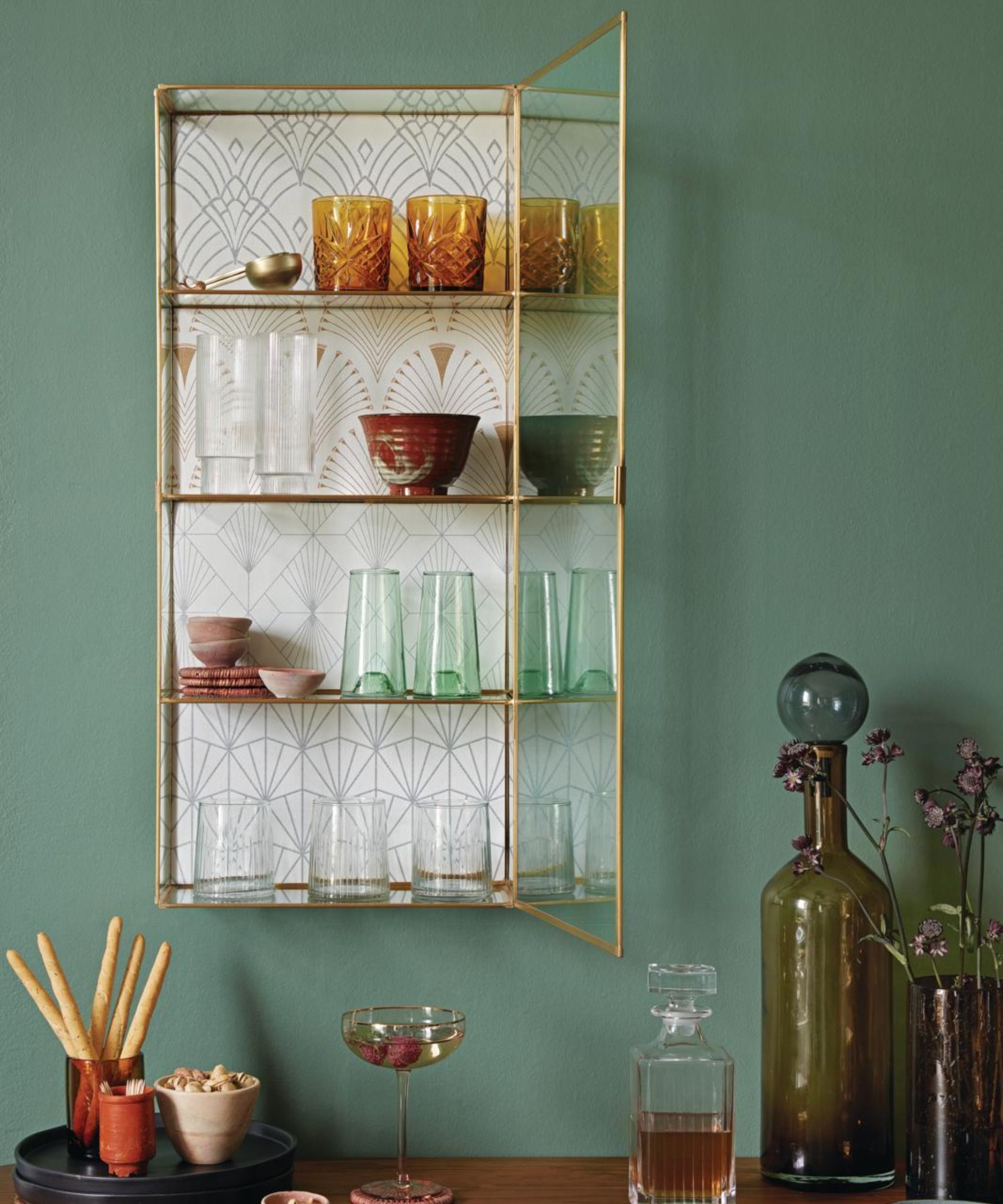
'One of the most common reasons for cloudy glasses is the presence of hard water minerals like calcium and magnesium in your tap water. When the dishwasher runs, these minerals can deposit on the glassware, leaving a cloudy film. This is often called hard water spots or etching,' explains Hashi Mohamed, president of Ivy Cleans.
Fantastic Service's domestic cleaning expert and supervisor, Petya Holevich recommends, 'If you live in an area with hard water, choose a detergent with water softeners and experiment with the amount of detergent to find the right balance for your specific dishwasher and water conditions.'
We recommend this Finish dishwasher water softener, from Amazon.
2. Detergent issues
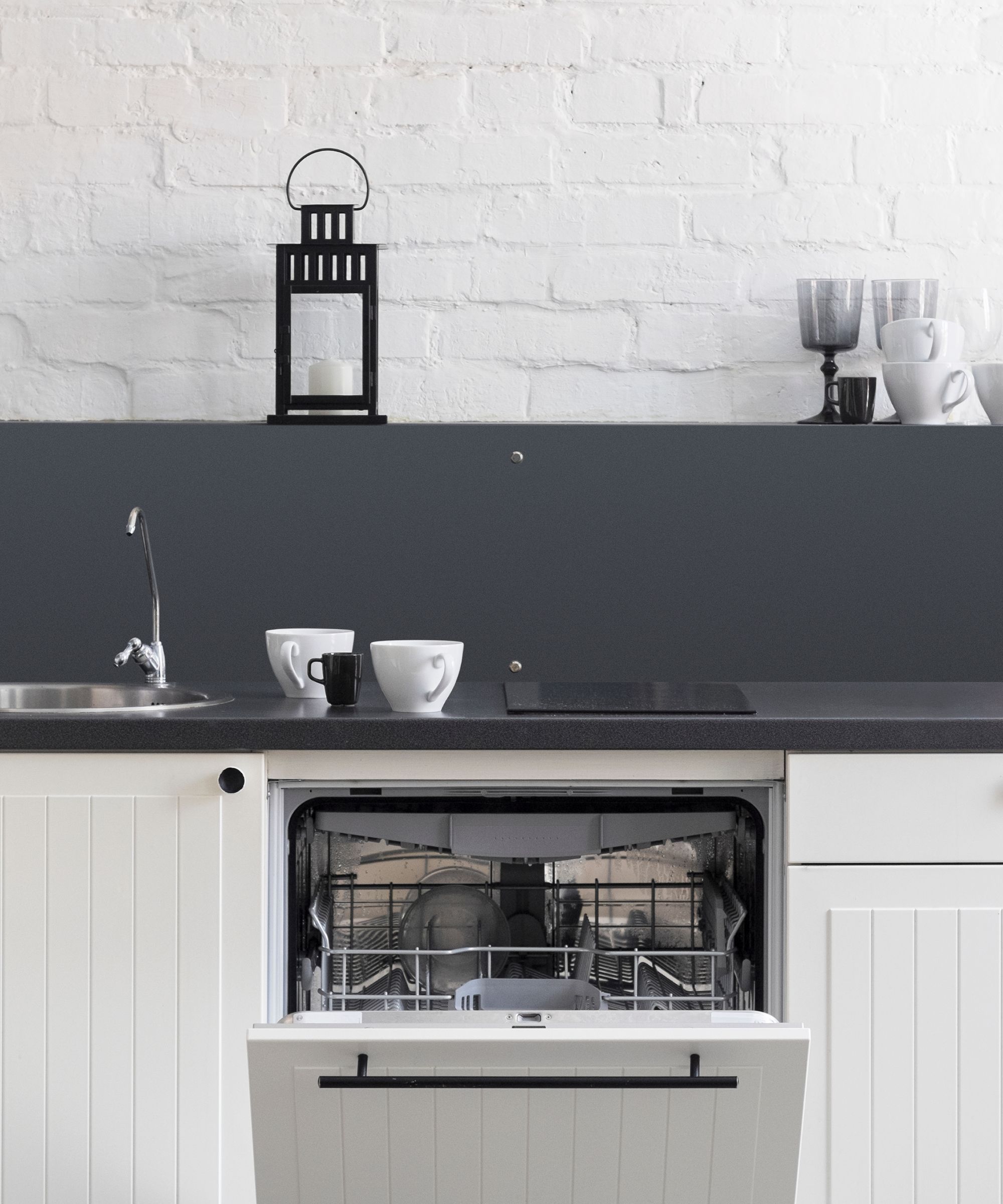
'If you're using too much detergent or the wrong type of detergent for your water conditions, it can result in soap residue on your glasses,' warns Hashi Mohamed. 'This residue can make them appear cloudy.
'Make sure to follow the manufacturer's recommendations for detergent usage and choose a detergent designed for use with hard water if necessary.'
You should also be sure to choose a good-quality dishwasher detergent.
Another potential issue causing your glasses to become cloudy depends on how your detergent is being stored.
'Naturally, detergents lose their effectiveness over time, especially if they’re stored in a humid environment,' explains Petya Holevich. 'To prevent cloudiness on glasses caused by old detergent, make sure you’re using fresh and properly stored dishwasher detergent.
'It’s recommended to keep this product in a cool, dry place to maintain its effectiveness.'
3. High water temperature

'Running your dishwasher with very hot water can sometimes cause cloudiness on glassware. The high temperature can accelerate the etching process and lead to a cloudy appearance,' explains Hashi Mohamed.
'To prevent this, you can try lowering the water temperature settings on your dishwasher if possible.'
When dishwasher detergents with phosphates are used with a hot cycle this can cause etching in the glass that can't be removed, so to avoid having permanently cloudy-looking glasses, wash glasses at a temperature below 140°F and use mild detergents to reduce the risk of glass becoming porous and absorbing residues.
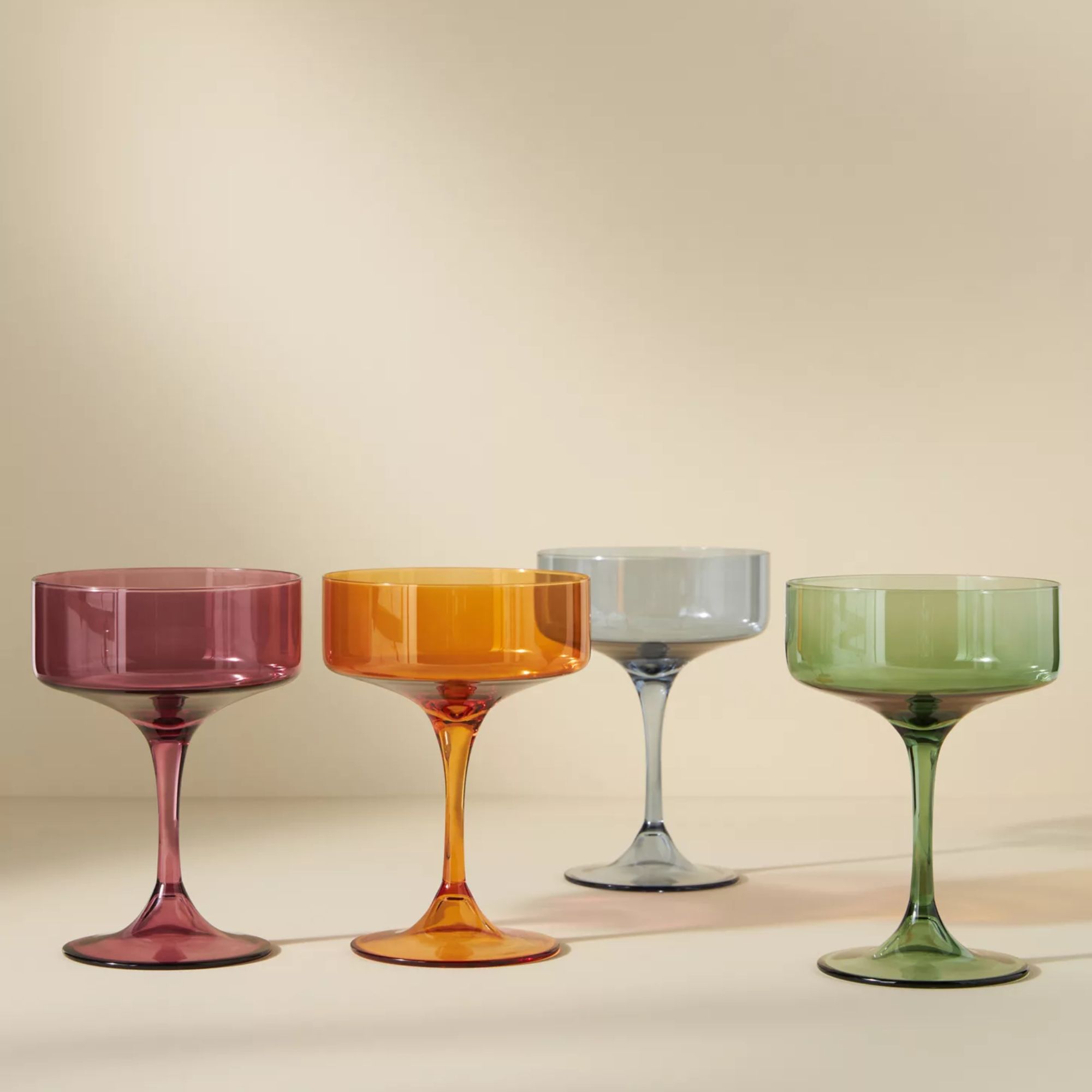
$56.00
Modernise your kitchen shelves with this coloful set of four glasses, perfect for special occasions.
4. Overloading the dishwasher
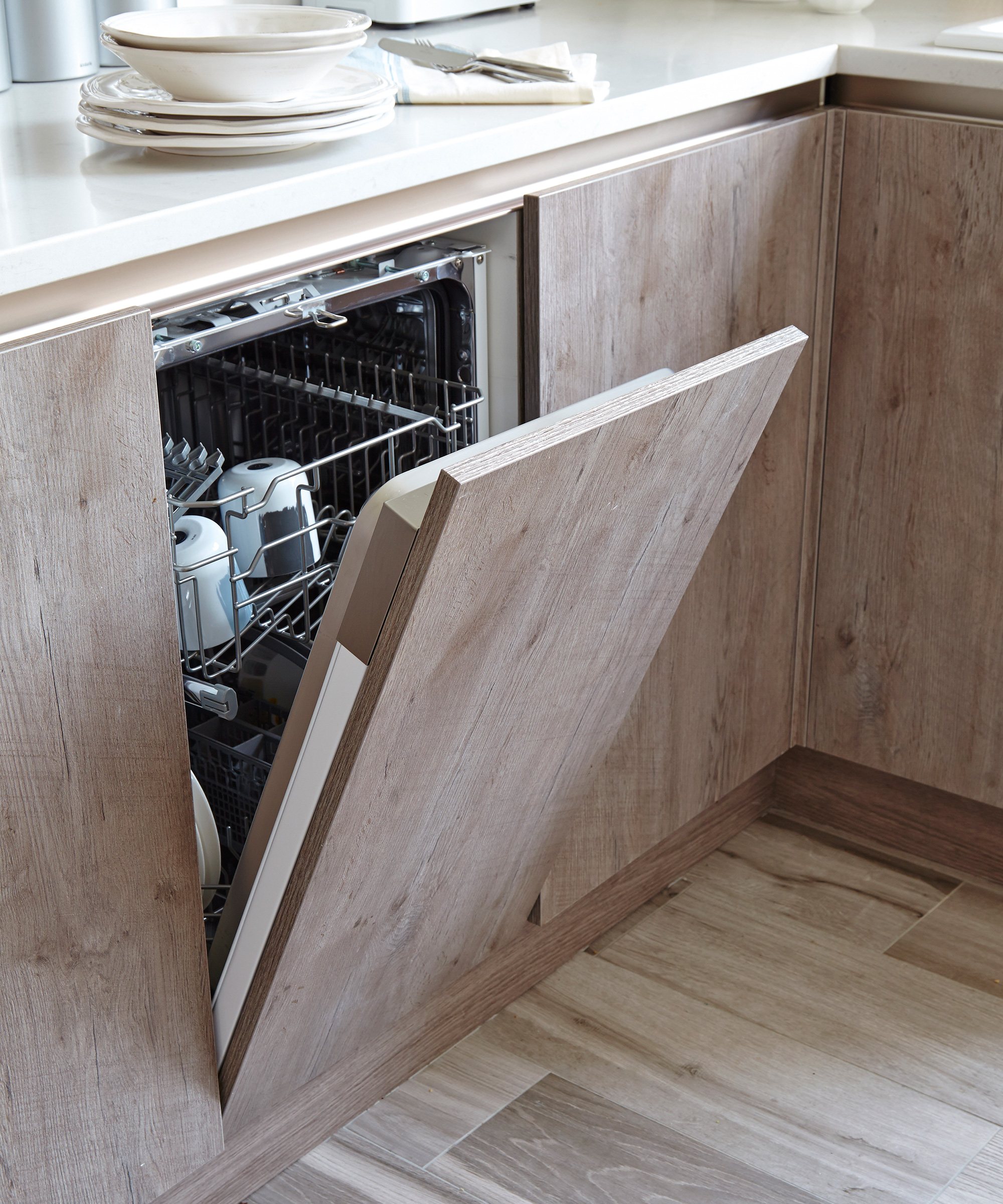
Petya Holevich advises that: 'Overloading the dishwasher can result in poor water circulation, leading to inadequate rinsing and cloudy glasses. Instead, load your dishwasher according to the manufacturer's guidelines, leaving enough space between the items in it for water to circulate properly.'
Properly space your glassware in the dishwasher to avoid crowding since this can trap cloudy residue.
'Placing glasses too close to each other or upside down can trap water, detergents, and mineral residues, preventing proper rinsing and contributing to cloudiness,' warns Muffetta Kruger, cleaning expert and founder of Muffetta’s Domestic Assistants.

Muffetta Krueger is a cleaning expert and founder of Muffetta’s Domestic Assistants with over 16 years of operational management experience in the service industry. Muffetta’s Domestic Assistants provides housekeepers, house cleaners and maids, and is based in New York.
5. Inadequate rinse aid
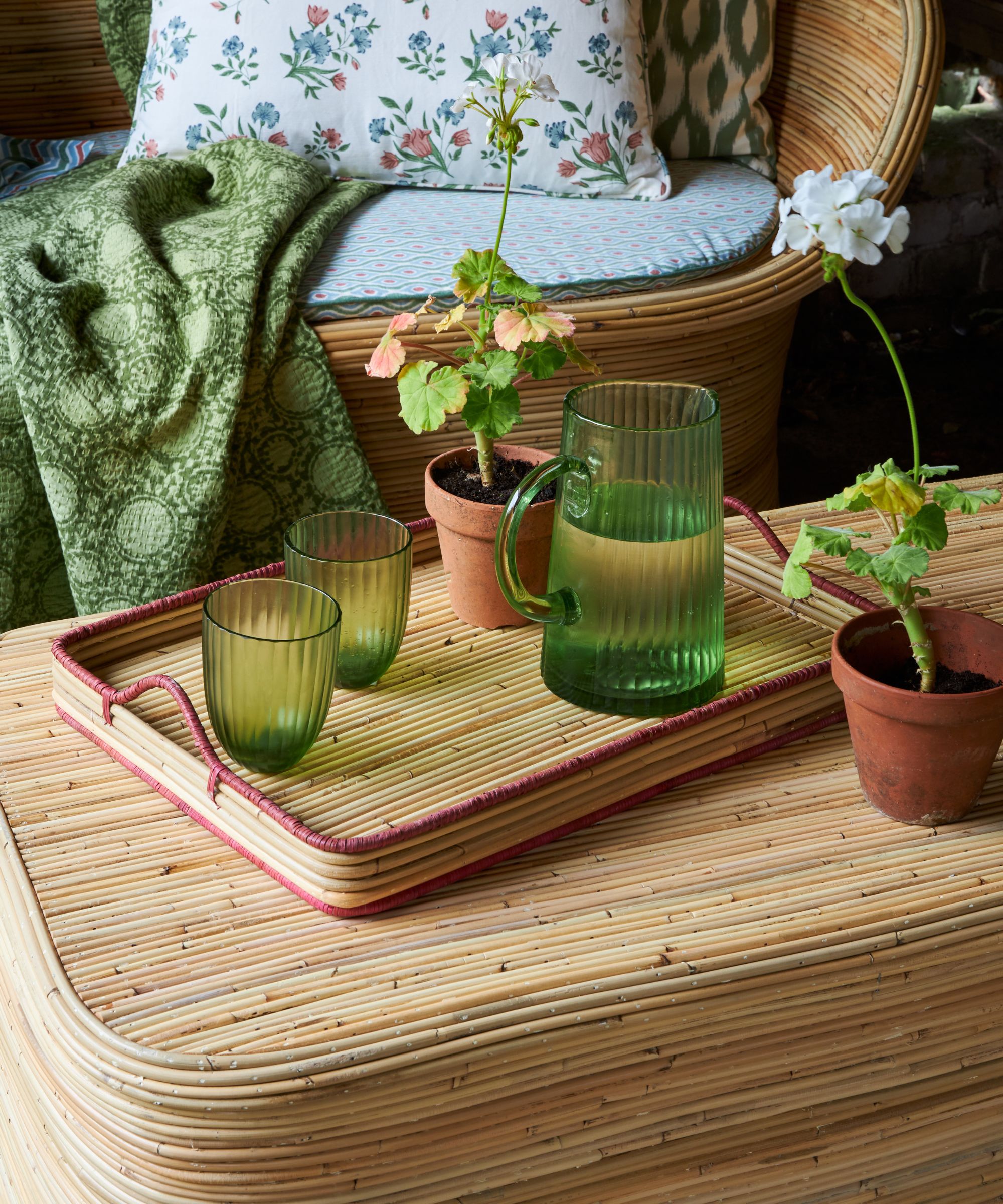
'Rinse aid helps water sheet off the dishes, preventing water spots and cloudiness. Make sure your dishwasher has a rinse aid and adjust the dispenser setting according to the water hardness in your area,' advises Petya Holevich.
'Also, regularly check and refill the rinse aid dispenser and adjust the temperature of your dishwasher to a lower one. Some models even have a special glassware setting which can be very helpful in preventing this type of issue.'
7. Pre-rinsing dishes too much
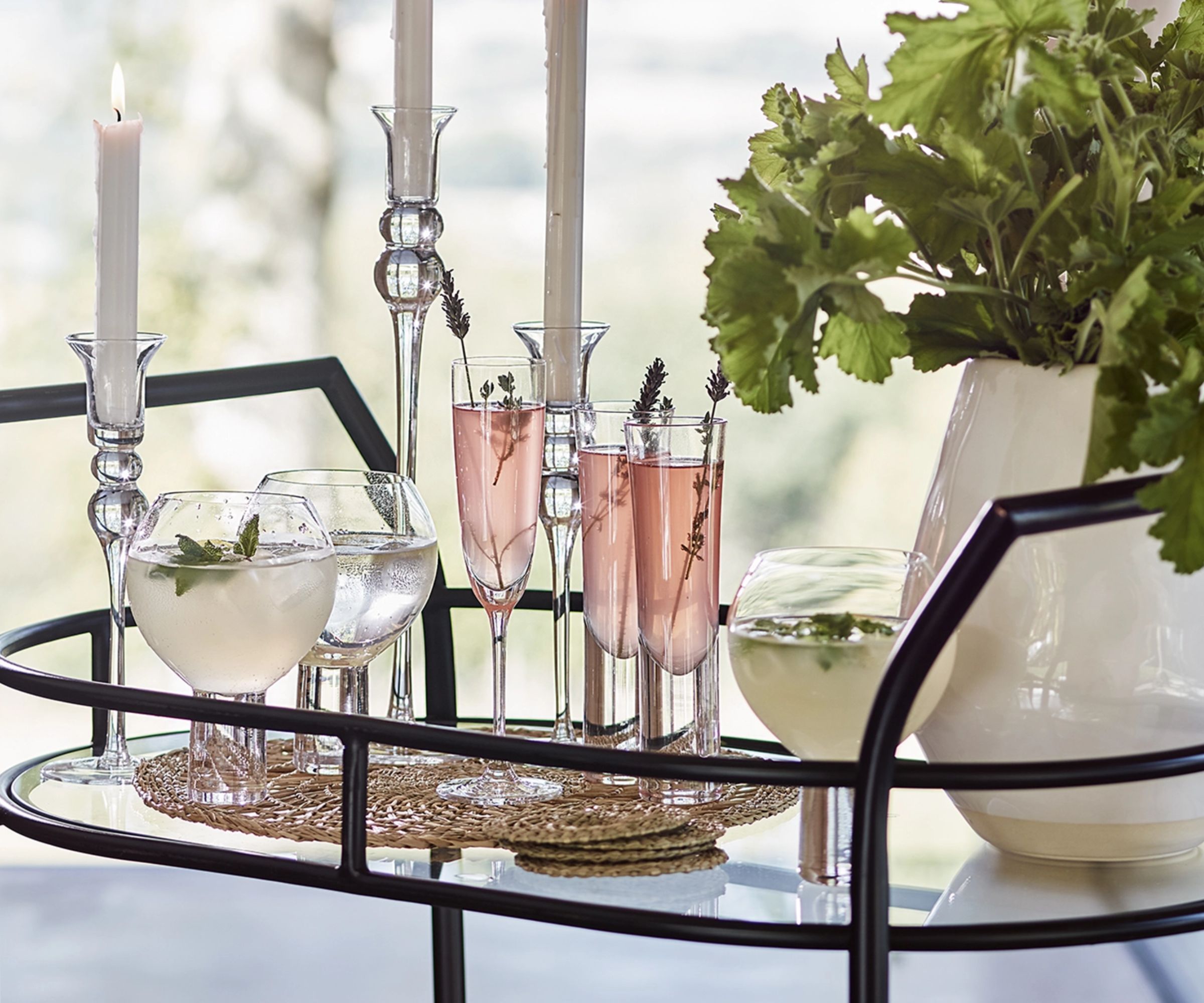
Although you would assume that contributing a cleaner dishwasher by pre-rinsing thoroughly will leave its contents cleaner and glasses less cloudy, this is not always the case.
Petya Holevich explains, 'Modern dishwashers are designed to handle dirty dishes, and pre-rinsing excessively can lead to a lack of soil for the detergent to work on, causing cloudiness.
'To prevent that, scrape off excess food residue from the items you’re washing but avoid pre-rinsing dishes thoroughly. Instead, let the dishwasher remove the remaining soil.'
FAQs
How to clean cloudy glasses?
'To address cloudy glasses, consider using a rinse aid, adjusting your detergent usage, and adjusting your dishwasher settings to find the right balance that works for your specific situation,' recommends Hashi Mohamed, president of Ivy Cleans.
'Regular maintenance and cleaning of your dishwasher's filters and spray arms can also help maintain the quality of your glassware.'
'Periodically clean the dishwasher to remove any accumulated residue, preventing it from re-depositing on the glasses,' advises Muffetta Kruger.
If your dishwasher is consistently producing cloudy glasses and dirty dishes after every wash, this could be a sign that it may be time to replace it or repair it. You can check out our guide for the best dishwashers.
Sign up to the Homes & Gardens newsletter
Design expertise in your inbox – from inspiring decorating ideas and beautiful celebrity homes to practical gardening advice and shopping round-ups.

Lola Houlton is a news writer for Homes & Gardens. She has been writing content for Future PLC for the past six years, in particular Homes & Gardens, Real Homes and GardeningEtc. She writes on a broad range of subjects, including practical household advice, recipe articles, and product reviews, working closely with experts in their fields to cover everything from heating to home organization through to house plants. Lola is a graduate, who completed her degree in Psychology at the University of Sussex. She has also spent some time working at the BBC.
-
 I’m an HVAC technician, and this is when I turn my AC on each year – plus 5 checks I always do beforehand
I’m an HVAC technician, and this is when I turn my AC on each year – plus 5 checks I always do beforehandSave yourself an AC hassle by running my checks and turning it on before big heat hits
By Josh Mitchell Published
-
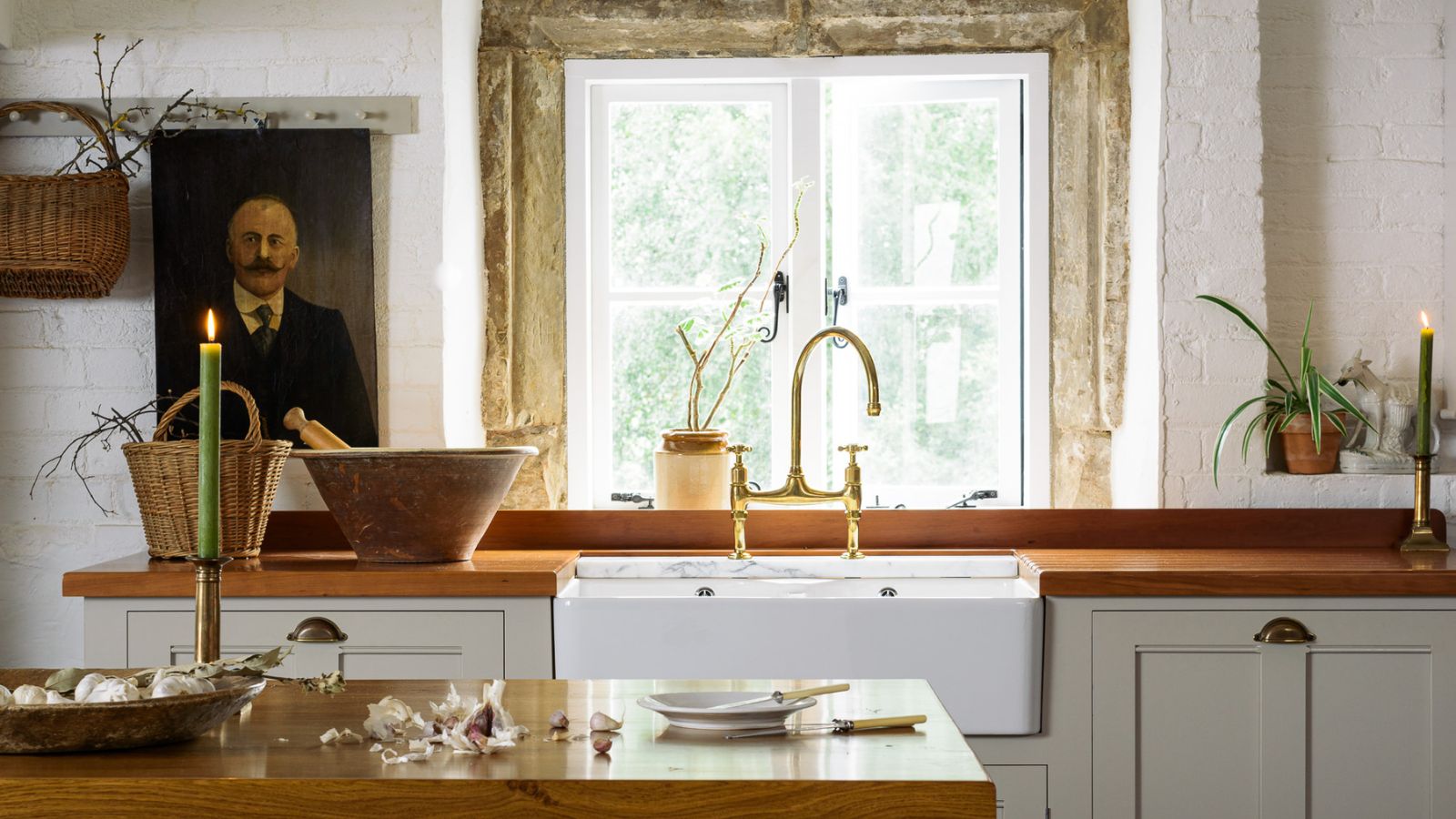 This simple marble hack elevates my budget-friendly wooden kitchen countertops and prevents the dreaded water damage for way less than you’d think
This simple marble hack elevates my budget-friendly wooden kitchen countertops and prevents the dreaded water damage for way less than you’d thinkThis design trick looks expensive, solves a problem, and was the easiest decision I made during my kitchen reno
By Charlotte Olby Published